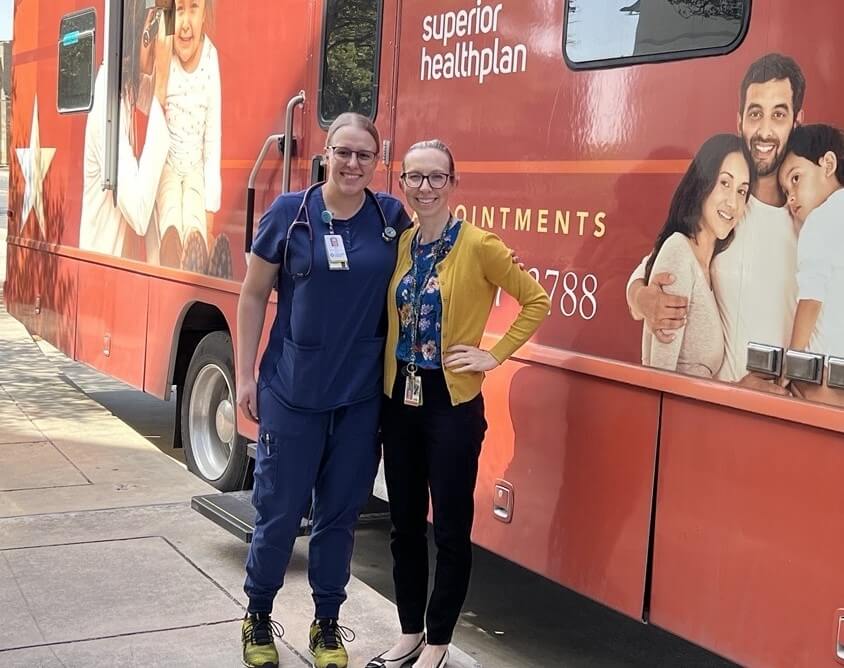Alina Lundblade’s path to nursing wasn’t set in stone at first. But considering her heart for children and health care, it was meant to be.
After teaching middle school, Lundblade felt a calling to nursing and obtained her Bachelor of Science in Nursing from The University of Texas Health Science Center at San Antonio’s School of Nursing in 2018 and started working as a registered nurse, or RN, at Methodist Hospital in San Antonio.

In 2020, at the height of the COVID-19 pandemic, she entered the School of Nursing’s Doctor of Nursing Practice, or DNP, program to receive her family nurse practitioner designation. At the time, Lundblade — like her cohorts — didn’t have any personal interactions with classmates, as everything was online.
By night, Lundblade worked as a nurse. By day, she would sleep, study, write papers and attend online classes. Working mostly with adults at the hospital, Lundblade sought to hone her skills with kids.
“For my future, I knew that it would benefit me if I could start working as an RN in [pediatric oncology],” she said.
And it has. Lundblade has received valuable experience working at Methodist Children’s Hospital with toddlers, teens and even patients in their 20s who’ve been diagnosed with childhood-related cancers. Thanks to her clinical rotations as part of the DNP program, she has also worked with the full spectrum of age ranges — from infants to the elderly.
When life gives you lemons, make lemonade
While Lundblade has faced some learning challenges related to attention-deficit/hyperactivity disorder and anxiety, she has not let this define her. In fact, it’s given her opportunities to grow stronger in other areas, like providing patients with more personalized care.
“I think it’s good for [students] to know that it’s okay to not be the ‘good-at-everything nurse,’” she said. “Just because you may not be the typical [nurse] doesn’t mean you don’t have strengths in other areas that will make you a great nurse practitioner.”
Ensuring patients feel seen and heard
Teaching seventh- through ninth-grade science classes at The Chistian School at Castle Hills during the 2015–16 school year gave Lundblade more perspective about how people learn differently, heightening her perspective as a nurse.
“[I can look at some people] when something’s being explained to them and I can just see the look on their face, that they’re lost, and I can kind of back up and [say], ‘Where did I lose you, what part do I need to clarify?’” she said.
Most importantly, Lundblade wants patients to feel that they matter. She said that the DNP program at the School of Nursing has enhanced her ability to view patients’ journeys in the long term — to help patients where they are and to prepare them for where they’re going.
The program has also enabled Lundblade to view her own role more expansively.
“I want to make sure patients feel seen and heard,” she said. “There are a few times where you just have a special encounter with a patient, whether it’s a special conversation or even if it is just a random joke with a patient and you see that light, that smile that hadn’t been there and you brought some brightness to their day,” says Lundblade. “Even if it’s the littlest thing. That gives me some of that sense of [making] a difference.”


